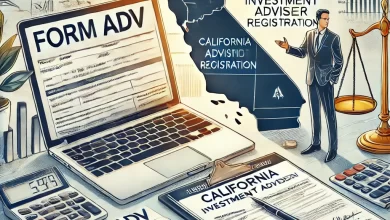Can an Estate Own a Sole Proprietorship Business?

Often preferred by entrepreneurs for its simplicity of creation and operation, a sole proprietorship is among the most basic and most prevalent business forms. Still, many people wonder what happens to a single proprietorship when the owner dies. More precisely, can an estate run and own a single proprietorship company?
Grasping Sole Proprietorship Ownership
A sole proprietorship is a type of business organization whereby the owner and the company are formally the same entity. Accordingly, this implies:
All business debts and liabilities fall individually on the owner.
The company exists not as a separate legal entity apart from the owner.
The owner’s personal tax return records both profits and losses.
A sole proprietorship cannot be transferred or held by another entity, including an estate, in its whole since it is intrinsically linked to the person owner and cannot be passed on.
Should a sole proprietetor die, what happens?
A sole proprietorship expires with the death of its owner; the business itself vanishes. Still, the estate can help you manage the business’s assets, liabilities, and activities. Usually, this is what happens:
Under management by an executor or administrator, the deceased’s estate takes over the company assets and debts. The estate can temporarily run activities to handle matters including debt collection or contract fulfillment, winding up affairs.
Assets of the sole proprietorship might be sold or passed to heirs or beneficiaries per the will or estate plan of the deceased. The buyer or successor can then decide to start a new company entity to carry on activities.
Liabilities: Any unpaid debts or responsibilities of the sole proprietorship fall to the estate. Should the liabilities surpass the assets, the estate could have to handle these matters during probate.
Is the business able to go forward?
Although the estate cannot formally own the sole proprietorship, it can help to guarantee the continuity of the company. Some typical choices are:
The executor could sell the assets of the business to a new owner who can rebuild the company under another framework.
Heirs could inherit the assets and create a new sole proprietorship or another business entity, say a limited liability company (LLC).
Sometimes the estate might run the company temporarily to finish outstanding work or maximize the value of the company assets before sale.
Important Issues for Sole Proprietors
Sole proprietors should take the following action to guarantee a seamless transition and safeguard the value of the company:
Establish a thorough estate plan outlining how the company assets should be managed upon your death.
Succession Planning: List the actions to change the ownership of the company assets after noting possible purchasers or successors.
Think about life or key person insurance to help the company or heirs financially during the changeover phase.
See an attorney to make sure your estate plan clearly addresses running the business and conforms with state requirements.
At last
A sole proprietorship in the conventional sense cannot be owned by an estate since the business structure is always linked to the person owner. To guarantee a seamless transfer, the estate can, however, momentarily handle and move the assets of the company. Effective estate and succession planning helps single owners protect the history of their company and guarantee continuity for their heirs or beneficiaries.






